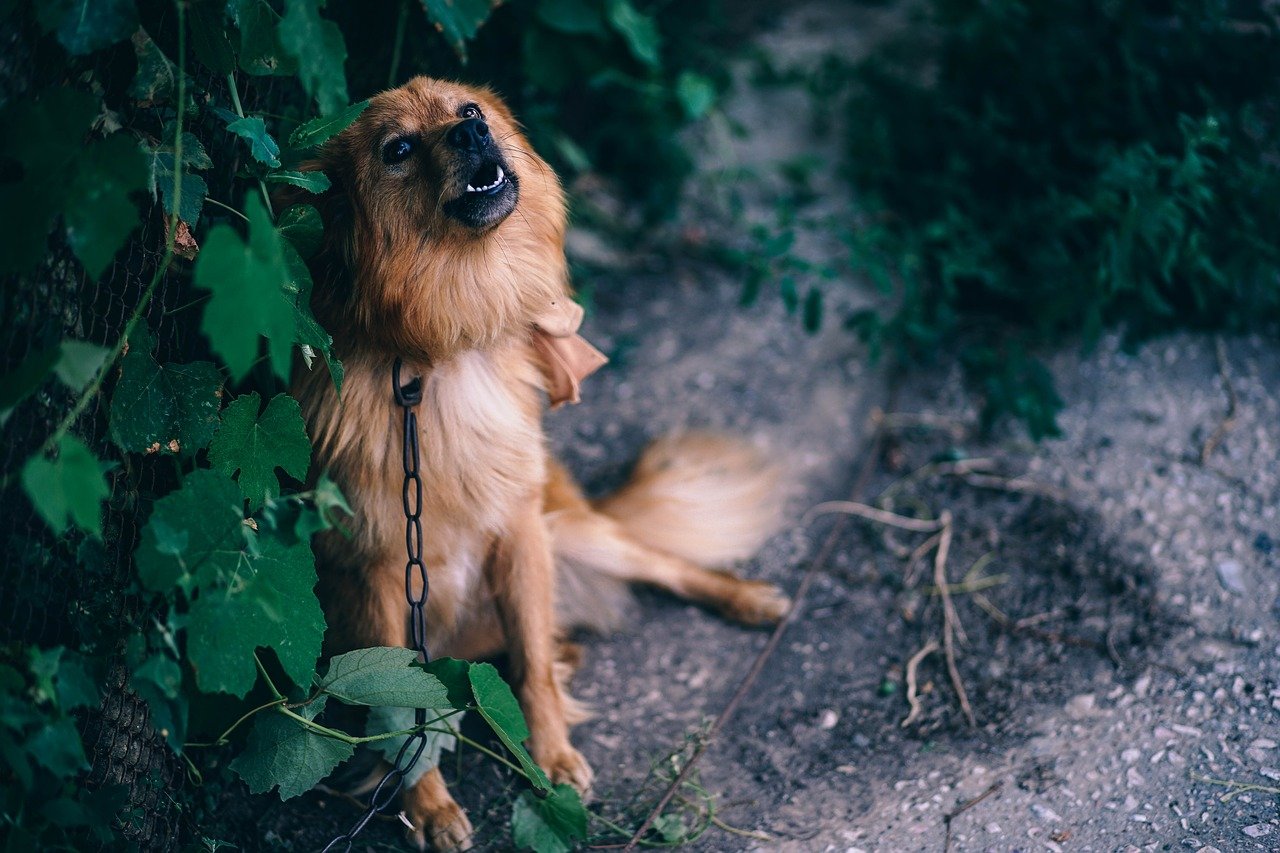Being a pet parent to a dog is one of the biggest responsibilities anyone can take on, but it’s also one of the greatest joys. Not only do dog moms and dads lead more active lifestyles than people who don’t have pets, but they’re also much happier and healthier. That doesn’t mean sharing your home with a dog is all wagging tails and sunshine though. From chewing your shoes to barking incessantly when you leave the house, many dogs have terrible habits you’ll need to help them break. So, how do you put an end to nonstop dog barking while you’re away from home? We’ll tell you why your dog is barking constantly, and we’ll share a few tips to help you quiet your pup once and for all.

Why is my dog barking all the time?
Unfortunately, our dogs can’t tell us what’s bothering them using human speech. They have limited ways to communicate, and barking is one of the most frustrating, especially if you live in an apartment with strict noise regulations. No matter how aggravating your dog’s incessant barking may be, it’s important to remember that Fido isn’t trying to be annoying. He’s trying to tell you something. Here are a few reasons your dog might be barking nonstop, and what you can do to stop it.
He’s feeling protective of his space
Dogs are territorial creatures. If your pup sees someone approach your front door – or if he spots another dog walking down the street – he could be sounding the alarm because he thinks you’re in danger. This is the canine equivalent of yelling, “Hey, you! Get off my lawn!” Does this sound like your dog? Try keeping the curtains closed. If your pup can’t see who’s out on the street, he’ll be less inclined to bark. If that fails, try putting your dog in a room without street-facing windows during times when you know people will be out and about, such as when the bus drops kids off from school.
He knows barking will get you to pay attention to him
If you immediately pay attention to your dog the instant he starts barking, you’re only reinforcing the very behavior you’re trying to prevent. As difficult as it may be, the best solution here is to ignore your dog until he stops barking. Even if you scold him by telling him to be quiet, you’re still giving him what he wants – your attention. Don’t speak to your dog, pet him, or even look at him if you can help it. It’s only when your pup quiets down that should you pay any attention to him. Why? Because this teaches your dog that being quiet and patient means he’ll be rewarded while barking incessantly means you won’t pay attention to him at all.
He’s feeling anxious about something
Just like territorial barking, anxious barking is usually caused by a trigger. Whether your dog barks at loud sounds, the sight of other dogs, or because he’s left alone, finding the root cause of your pup’s excessive barking is essential to putting a stop to it for good. Try keeping your dog in a quiet room when you’re away from home. A white noise machine might help distract him from the noise of the outside world. You’ll also want to train your pup not to bark when you leave the house. Try some of the following tips:
- Leave your dog inside for a few minutes, and reward him with a treat or attention if he sits quietly.
- Make sure your pooch gets plenty of exercise, as he’ll be much less likely to bark if he’s tired from an intense play session.
- Give your dog a more appealing alternative to barking, such as a puzzle feeder. He’ll be so preoccupied with retrieving his treats that he won’t want to waste time barking.
If your fur baby continues to bark when you leave the home, consider hiring a pet sitter, asking your vet about medication to relieve his anxiety, or consulting a professional dog trainer with experience working with dogs who have separation anxiety.

What breeds bark a lot?
Some dogs are naturally calmer and quieter than others. If you’re looking for a quiet dog who won’t cause a ruckus, you might want to consider breeds like basenji, bulldog, French bulldog, Australian shepherd, Irish setter, and cavalier King Charles spaniel. Some dog breeds, on the other hand, are famously vocal. These are the top three most talkative breeds:
#1: Chihuahua
Tiny but vocal, the Chihuahua features on every list of noisy dog breeds. Whether your little pup is challenging your mail carrier to a fight, or she simply wants your attention right this instant, these petite pooches are certainly chatty.
#2: Beagle
While these sad-eyed hound dogs were the inspiration for Snoopy, one of the world’s most famous animated dogs, they’re also the inspiration for many noise-canceling headphone purchases. Beagles love to sing the song of their people, and it’s a loud, baying call.
#3: Pomeranian
These tiny, fluffy pooches are so notorious for barking that even Pom-centric websites acknowledge it as one of the top complaints about the breed. Yikes!

Is your dog’s constant barking driving you up the wall? We have some good news: it’s never too late to train – or retrain – your dog to settle down and hush up. Use positive reinforcement, never yell at your dog (she’ll think you’re barking at her and bark louder), and don’t be afraid to ask your vet for help if your training efforts go awry.
Editors' Recommendations
- 5 surefire ways to keep your dog off your bed and get a good night’s sleep
- How to stop a dog from peeing in their crate for good in 5 easy-to-follow steps
- Looking for signs your dog has ticks? These telltale symptoms mean you have a flea or tick problem
- 7 dog training podcasts we’re obsessed with
- Funny dog video: Pup has an adorable reaction to a superhero pet on TV




